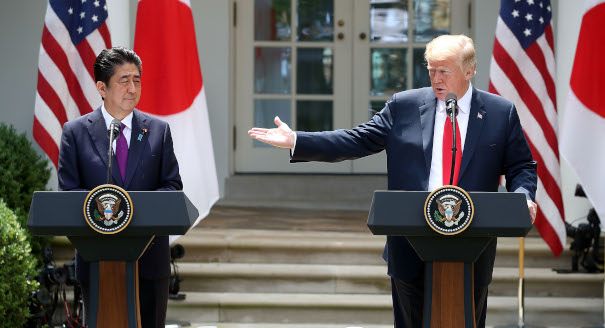Registration
You will receive an email confirming your registration.
U.S. and Japanese coordination on China policy is coming under new strain as the Trump administration unveils increasingly protectionist trade policies and proceeds with amorphous North Korean negotiations that could significantly impact the regional security order. Washington and Tokyo are sending conflicting signals regarding their policies toward China, bracing for strategic competition but also trying to strengthen cooperation in certain priority areas.
Matake Kamiya, Shin Kawashima, Asei Ito, Ellen L. Frost, and Evans Revere discussed evolving Japanese and American perspectives of China policy and future prospects ahead of a leaders’ gathering at the UN General Assembly meeting in New York. Carnegie’s James L. Schoff moderated.
This event is co-sponsored by the Japan Forum on International Relations.
Shin Kawashima
Shin Kawashima is professor in the Department of International Relations at the University of Tokyo where he specializes in modern Chinese diplomatic history.
Matake Kamiya
Matake Kamiya is professor of international security studies at the National Defense Academy of Japan. He is also director and senior principal research fellow at the Japan Forum on International Relations.
Asei Ito
Asei Ito is associate professor at the Institute of Social Science, University of Tokyo, where he specializes in the Chinese economy and industrial development.
Ellen L. Frost
Ellen L. Frost is a senior adviser and fellow at the East West Center. She has served as counselor to the U.S. trade representative and deputy assistant secretary of defense for international technology and economic affairs.
Evans Revere
Evans Revere is a nonresident senior fellow at the Brookings Institution and a former principal deputy assistant secretary of state for East Asian and Pacific affairs.
James L. Schoff
James L. Schoff is a senior fellow in the Carnegie Asia Program. His research focuses on U.S.-Japan relations and regional engagement, Japanese politics and security, and the private sector’s role in Japanese policymaking.
